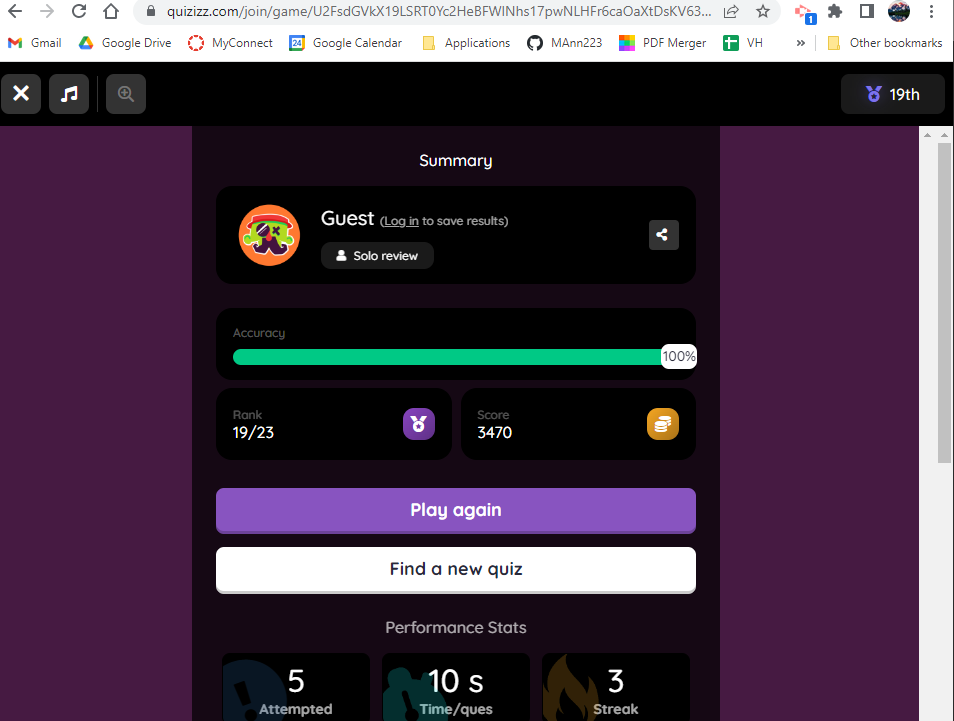Unit 3 Team HW
Boolean Expressions and if Statements
//exercise 2
import java.util.Scanner;
Scanner input = new Scanner(System.in);
System.out.print("Input a: ");
double a = input.nextDouble();
System.out.print(a);
System.out.print("Input b: ");
double b = input.nextDouble();
System.out.print(b);
System.out.print("Input c: ");
double c = input.nextDouble();
System.out.print(c);
double result = b * b - 4.0 * a * c;
if (result > 0.0) {
double r1 = (-b + Math.pow(result, 0.5)) / (2.0 * a);
double r2 = (-b - Math.pow(result, 0.5)) / (2.0 * a);
System.out.println("Roots are" + r1 + " and " + r2);
} else if (result == 0.0) {
double r1 = -b / (2.0 * a);
System.out.println("Root is " + r1);
} else {
System.out.println("No real roots.");
}
//exercise 4
Scanner in = new Scanner(System.in);
System.out.print("Input: ");
double input = in.nextDouble();
System.out.print(input);
if (input > 0)
{
if (input < 1)
{
System.out.println("Positive small number");
}
else if (input > 1000000)
{
System.out.println("Positive large number");
}
else
{
System.out.println("Positive number");
}
}
else if (input < 0)
{
if (Math.abs(input) < 1)
{
System.out.println("Negative small number");
}
else if (Math.abs(input) > 1000000)
{
System.out.println("Negative large number");
}
else
{
System.out.println("Negative number");
}
}
else
{
System.out.println("Zero");
}
// exercise 6
Scanner in = new Scanner(System.in);
System.out.print("Double 1: ");
double num1 = in.nextDouble();
System.out.print(num1);
System.out.print("Double 2: ");
double num2 = in.nextDouble();
System.out.print(num2);
num1 = Math.round(num1 * 1000);
num1 = num1 / 1000;
num2 = Math.round(num2 * 1000);
num2 = num2 / 1000;
if (num1 == num2)
{
System.out.println("Same up to three decimal places");
}
else
{
System.out.println("Different");
}
// exercise 8
Scanner in = new Scanner(System.in);
System.out.print("Type a letter: ");
String input = in.next().toLowerCase();
System.out.println(input);
boolean uppercase = input.charAt(0) >= 65 && input.charAt(0) <= 90;
boolean lowercase = input.charAt(0) >= 97 && input.charAt(0) <= 122;
boolean vowels = input.equals("a") || input.equals("e") || input.equals("i")
|| input.equals("o") || input.equals("u");
if (input.length() > 1)
{
System.out.println("Error. Not a single character.");
}
else if (!(uppercase || lowercase))
{
System.out.println("Error. Not a letter. Enter uppercase or lowercase letter.");
}
else if (vowels)
{
System.out.println("Input letter is Vowel");
}
else
{
System.out.println("Input letter is Consonant");
}
// exercise 10
int i;
System.out.println ("First 10 natural numbers:");
for (i = 1;i <= 10;i++)
{
System.out.println(i);
}
System.out.println ("\n");
// part a
public static int numberOfLeapYears(int year1, int year2)
{
int numLeapYears = 0;
for (int i = year1; i <= year2; i++) {
if (isLeapYear(i)) {
numLeapYears ++;
}
}
return numLeapYears;
}
// part b
public static int dayOfWeek(int month, int day, int year)
{
int firstDay = firstDayOfYear(year);
int theDate = dayOfYear(month, day year);
int theDay = (firstDay + theDate - 1) % 7;
return theDay;
}
public class APCalendar
{
/** Returns true if year is a leap year and false otherwise. */
private static boolean isLeapYear(int year)
{ /* implementation not shown */ }
/** Returns the number of leap years between year1 and year2, inclusive.
* Precondition: 0 <= year1 <= year2
*/
public static int numberOfLeapYears(int year1, int year2)
{ /* to be implemented in part (a) */
int numLeapYears = 0;
for (int i = year1; i <= year2; i++) {
if (isLeapYear(i)) {
numLeapYears ++;
}
}
return numLeapYears;
}
/** Returns the value representing the day of the week for the first day of year,
* where 0 denotes Sunday, 1 denotes Monday, ..., and 6 denotes Saturday.
*/
private static int firstDayOfYear(int year)
{ /* implementation not shown */ }
/** Returns n, where month, day, and year specify the nth day of the year.
* Returns 1 for January 1 (month = 1, day = 1) of any year.
* Precondition: The date represented by month, day, year is a valid date.
*/
private static int dayOfYear(int month, int day, int year)
{ /* implementation not shown */ }
/** Returns the value representing the day of the week for the given date
* (month, day, year), where 0 denotes Sunday, 1 denotes Monday, ...,
* and 6 denotes Saturday.
* Precondition: The date represented by month, day, year is a valid date.
*/
public static int dayOfWeek(int month, int day, int year)
{
int firstDay = firstDayOfYear(year);
int theDate = dayOfYear(month, day year);
int theDay = (firstDay + theDate - 1) % 7;
return theDay;
}
// There may be instance variables, constructors, and other methods not shown.
}
